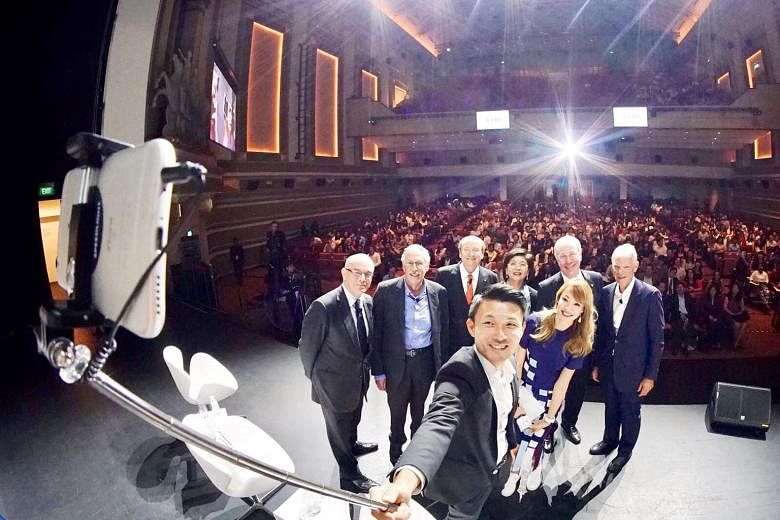Singapore is in a good position to benefit from the rise of artificial intelligence, according to four Nobel Prize winners.
The four Nobel laureates in the field of economic sciences were in town on Wednesday on the first stop of a global UBS conference streamed live across the world.
More than 1,000 university students attended at Capitol Theatre.
The four laureates who spoke were:
- Professor Michael Spence of New York University's Stern School of Business
- Professor Robert Merton of the Massachusetts Institute of Technology and Harvard University
- Professor Roger Myerson of the University of Chicago
- Professor Peter A. Diamond of the Massachusetts Institute of Technology
Prof Spence said artificial intelligence (AI) should be seen as an enabler, instead of a replacement for humans.
"AI as we understand it now is a tool, not a substitute. When we did empirical work before, we used to spend hours and hours just digging up data. Now we spend much less time digging up data and more time understanding it," he added.
The speakers also said Singapore remains relevant in these volatile times, noting that the country's size, openness and commitment to education will equip its next generation with the needed survival skills.
Dr Merton said Singapore's small size gives it the ability to adapt to change as long as it pursues the right approach to education.
"Because of the way you're trained, you're capable of responding to change, to events that you couldn't predict. And instead of being fearful of uncertainty, you look at it and say that we are equipped probably as well as anybody (to face that change)," he noted.
UBS' own study shows that more than 40 per cent of current jobs are at risk of being affected by the rise of robots, but just under 10 per cent of these jobs will disappear. The remaining 30 per cent of jobs will be transformed.
"We estimate that by 2030, AI could create economic value of between US$1.8 trillion and US$3 trillion (S$2.4 trillion to S$4 trillion) a year in Asia. However, we also forecast AI could potentially affect and transform 30 million to 50 million jobs in Asia, even as it creates new categories of jobs," said UBS Wealth Management's vice-chairman Tracey Woon.
"Singapore is in a sweet spot to ride the AI wave and emerge as one of the key innovation leaders.
"Based on our research, potential AI-related job losses in Singapore will be... limited because AI will most likely affect medium- skilled jobs that involve predictable and routine tasks, and Singapore has the lowest exposure to this group within the region," she added.

